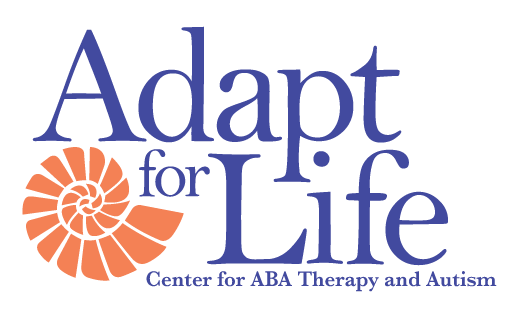
Navigating Autism: A Comprehensive Resource for Family Well-being on our ABA Therapy Blog
In our family journeys, autism is a shared reality. Understanding the unique social challenges our children face is vital. Let’s explore the impact of autism on social skills, gaining insights into our kids’ distinctive paths.
Dive into this blog to unravel the distinctions within ASD and gather valuable tips to support your entire family.
The good news is that once diagnosed and given the right support, we can make a significant difference in how well our child thrives with autism. So, let’s dive in, starting with a question many parents ask: what are some signs of autism?
What are some facts about Autism Spectrum Disorder?
- Autism Spectrum Disorder (ASD) is a neurodevelopmental condition characterized by challenges in social interaction, communication, and behavior.
- ASD is a recognized medical diagnosis according to the DSM-5.
- The spectrum nature of ASD means individuals may experience a diverse range of difficulties, making each case unique.
- Common features of ASD include social communication challenges, repetitive behaviors, and restricted interests.
- According to estimates from CDC’s Autism and Developmental Disabilities Monitoring (ADDM) Network, about 1 in 36 children has been identified with ASD. ASD is reported to occur in all racial, ethnic, and socioeconomic groups.
- ASD is nearly 4 times more common among boys than among girls.
- Additionally, about 1 in 6 (17%) children aged 3–17 years were diagnosed with a developmental disability, as reported by parents, during a study period of 2009-2017. This includes autism, attention-deficit/hyperactivity disorder, blindness, and cerebral palsy, among others.
How many families live with ASD?
Curious about the families living with autism? Well, approximately 1% of the world’s population grapples with the diverse aspects of autism spectrum disorder—over 75,000,000 individuals, as per CDC research. It’s not just a statistic; it’s about people, families, and their unique journeys.
Just like the diverse tapestry of humanity, autism knows no boundaries of race or ethnicity. It touches lives across backgrounds, weaving its own intricate story in each.
Beyond the numbers, understanding autism is about fostering awareness among parents, caregivers, educators, and healthcare providers. If you ever find yourself pondering questions or concerns about autism, we’re here for you. Let’s navigate this journey together because every story is unique, and every individual matters.
Signs of Autism Spectrum Disorder in Children
As a parent, you might be curious about how autism manifests in kids. Children with autism often face challenges related to social interaction, communication, and behavior. Their experiences can be unique, with varying degrees of difficulty in understanding social cues, expressing themselves, or engaging in repetitive behaviors.
Here are some signs of autism in children:
Communication:
- Does not respond to his/her name by 12 months of age.
- Cannot explain what he/she wants.
- Language skills are slow to develop or speech is delayed.
- Doesn’t follow directions.
- Seems to hear sometimes, but not other times.
- Doesn’t point or wave “bye-bye.”
- Used to say a few words or babble, but now does not.
Social Behavior:
- Doesn’t smile when smiled at.
- Has poor eye contact.
- Seems to prefer to play alone.
- Is very independent for his/her age.
- Seems to tune people out.
Stereotyped Behavior:
- Gets “stuck” doing the same things over and over and can’t move on to other things.
- Shows deep attachment to toys, objects, or routines.
- Spends a lot of time lining things up or putting things in a certain order.
- Repeats words or phrases.
Other Behaviors:
- Has unusual movement patterns.
- Doesn’t know how to play with toys.
- Does things “early” compared to other children.
- Walks on his/her toes.
- Throws intense or violent tantrums.
- Is overly active, uncooperative, or resistant.
- Seems overly sensitive to noise.
What are the risks if left untreated?
Autism spectrum disorder (ASD) often brings unique challenges, encompassing feelings of anxiety, depression, and navigating intricate behaviors. Addressing the root causes behind these ASD-related challenges not only tackles these issues directly but also positively impacts feelings of anxiety, depression, and behavior.
If autism remains undiagnosed or untreated, it can pose increasing challenges as your child grows. However, by identifying mental health concerns early on, we can step in and potentially prevent additional challenges from emerging as your child develops. Taking these proactive measures in the early stages can make a significant difference in lessening the long-term impact of autism spectrum disorder.
Here at Adapt For Life Center for ABA Therapy and Autism, our team, including Board-Certified Behavior Analysts, specializes in providing comprehensive care for children with autism.
If you have any concerns, trust your instincts and take action early – early intervention makes a world of difference!
How is an autism diagnosis determined?
Understanding your child’s journey: Specialists will talk with you about your child’s growth and experiences, from when they were very young until now, to understand their unique strengths and challenges.
Observation in different settings: Your child will be observed in various places like home or school, to see how they interact and behave with others.
Special tests and assessments: There are fun games and questions that help specialists understand how your child thinks, communicates, and moves. These are not stressful for your child but help the specialists learn more about them.
Looking at medical history: Doctors will review your child’s medical history and any other conditions they might have to get a full picture of their health and needs.
Your voice matters: As a parent, your insights and experiences are crucial. You know your child best, so your input is essential throughout the process.
Discussion and diagnosis: After all evaluations, the specialists will discuss with you whether your child meets the criteria for an autism diagnosis. Remember, every child is unique, and the diagnosis is just one part of understanding and supporting them in the best way possible.
